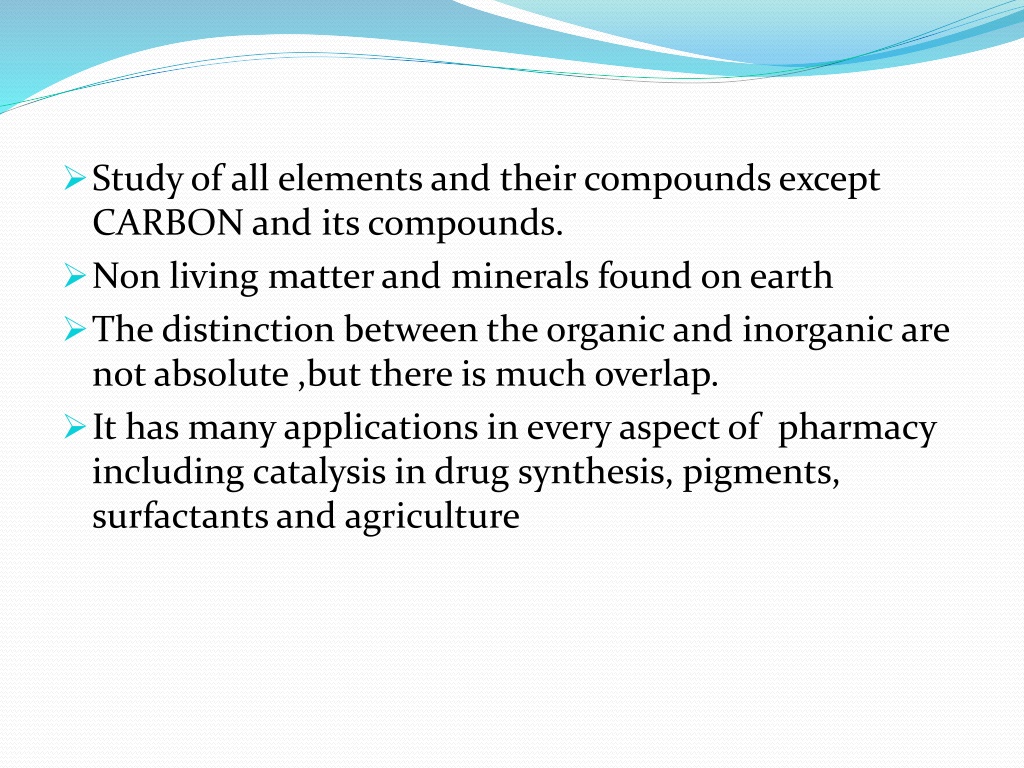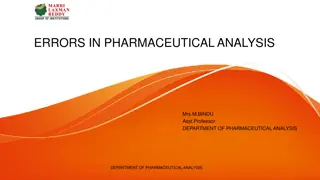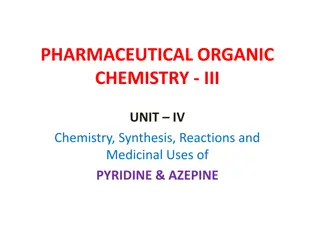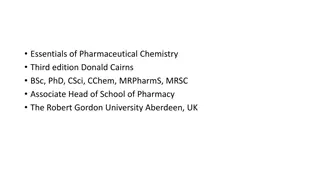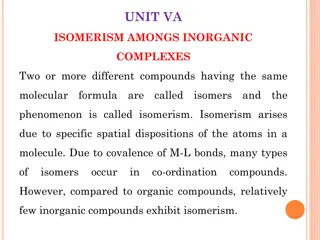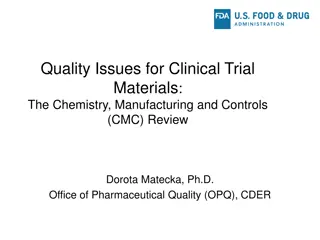Inorganic Pharmaceutical Chemistry: Applications and Importance
Inorganic pharmaceutical chemistry explores the study of elements and compounds excluding carbon, with diverse applications in pharmacy. It encompasses the synthesis and use of inorganic compounds in drug development, catalysis, pigments, and agriculture. The field also delves into the medicinal value of inorganic pharmaceuticals, including their role as astringents, antimicrobials, pharmaceutical aids, and in maintaining body fluid balance. Additionally, it examines the preparation, quality standards, and storage conditions of inorganic compounds for pharmaceutical use.
Download Presentation

Please find below an Image/Link to download the presentation.
The content on the website is provided AS IS for your information and personal use only. It may not be sold, licensed, or shared on other websites without obtaining consent from the author. Download presentation by click this link. If you encounter any issues during the download, it is possible that the publisher has removed the file from their server.
E N D
Presentation Transcript
Study of all elements and their compounds except CARBON and its compounds. Non living matter and minerals found on earth The distinction between the organic and inorganic are not absolute ,but there is much overlap. It has many applications in every aspect of pharmacy including catalysis in drug synthesis, pigments, surfactants and agriculture
BRANCHES COORDINATION CHEMISTRY BIOINORGANIC ORGANOMETALLIC COMPOUNDS SYNTHETIC INORGANIC CHEMISTRY.
INORGANIC COMPOUNDS Berzelius, the 19thcentury chemist , described inorganic compounds are inanimate. The first important synthetic inorganic compound was ammonium nitrate for soil fertilization. These are synthesized for use as drugs such as cisplatin, magnesium hydroxide etc. Some of the compounds are used as catalysts and reagents in organic chemistry. Ex: lithium aluminium hydride.
Sources of inorganic compounds : Derived from either organic or inorganic sources . Many drugs are from plant and synthetic sources. Definition : Study of pharmaceutical applications of the inorganic compounds led to the establishment of a new avenue called pharmaceutical inorganic chemistry. It deals with the study of preparation, standards of purity, limit test for determining quality ,purity and storage conditions of all inorganic compounds.
Importance of inorganic pharmaceuticals : Inorganic pharmaceuticals are useful in the following ways : Useful medicinally for their therapeutic purpose . Ex: Astringents and antimicrobials etc. Pharmaceutical aids. Ex: Bentonite , talc etc. Replenishing the normal content of body fluids. Ex- Sodium, potassium, calcium, chloride etc. Used in pharmaceutical analysis . Ex Titrants such as potassium permanganate etc.
Applications in pharmacy as follows : Abrasives Dibasic calcium phosphate . Absorbents Calcium carbonate . Acidifiers dil. Hydrochloric acid . Adsorbents Bismuth subnitrate . Alkalizers - Sodium citrate . Anaesthetics Nitrous oxide . Analgesic Nitrous oxide . Antacids Caco3 . Anthelmintics Ammoniated mercury.
